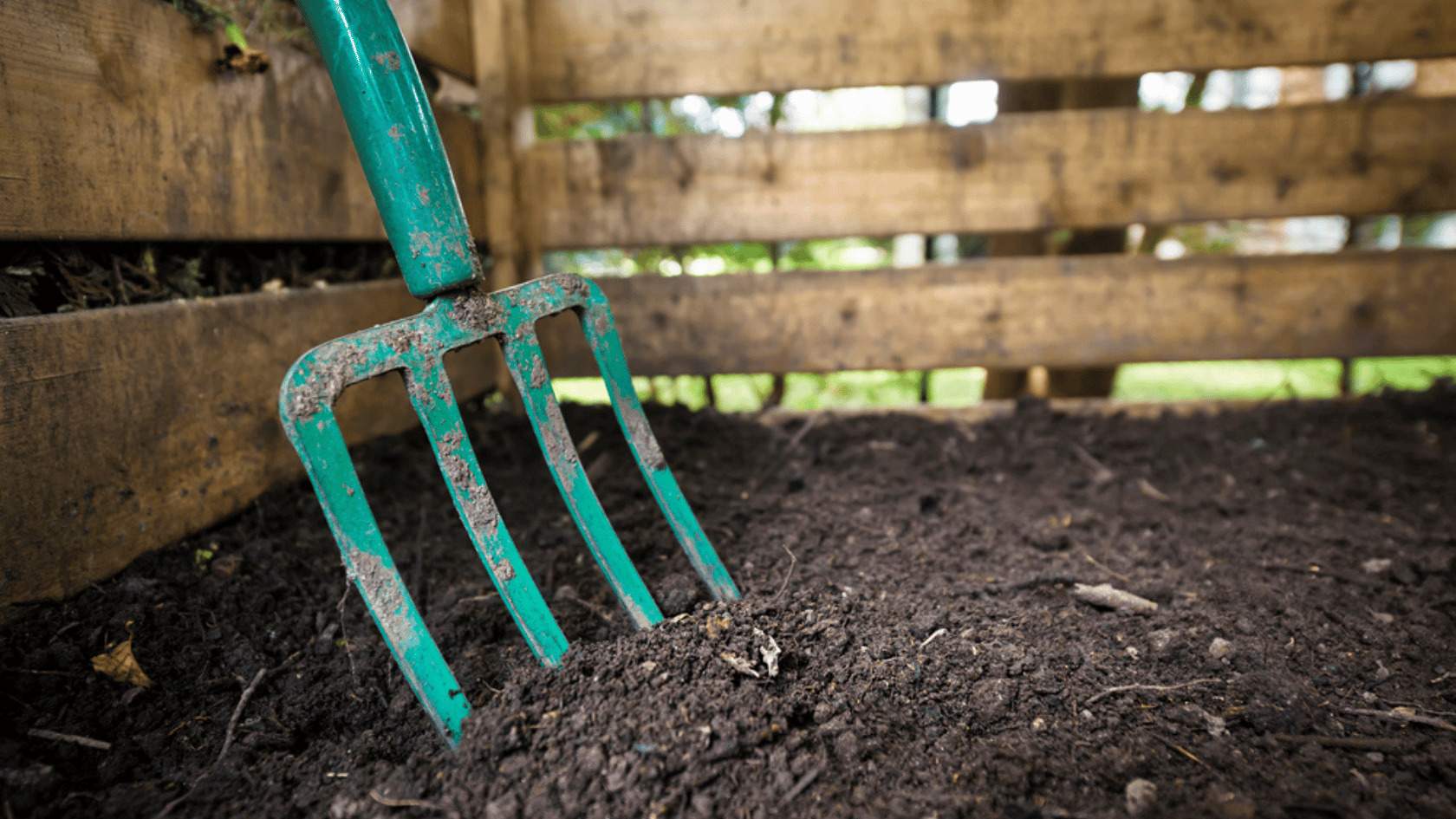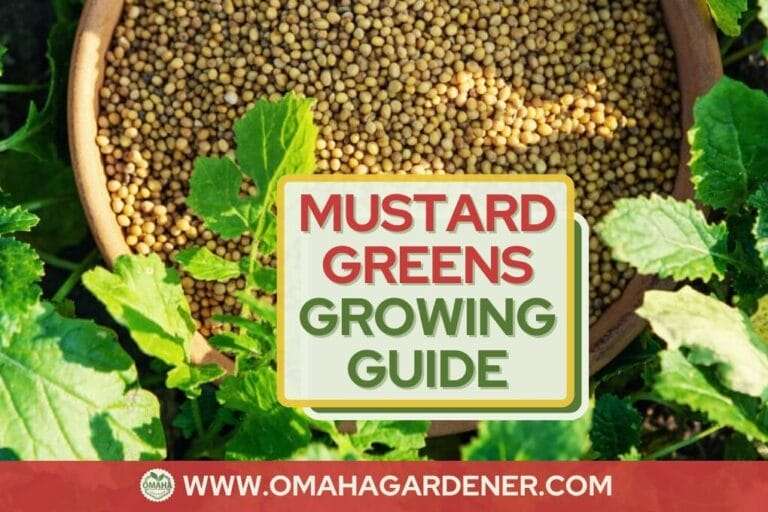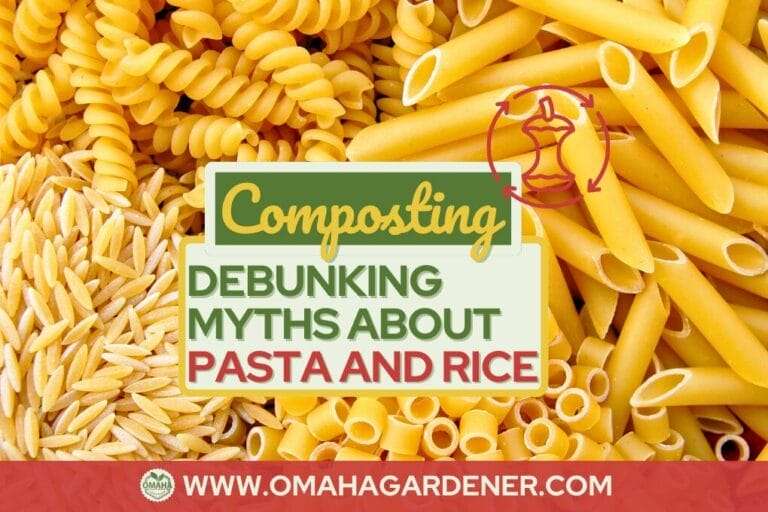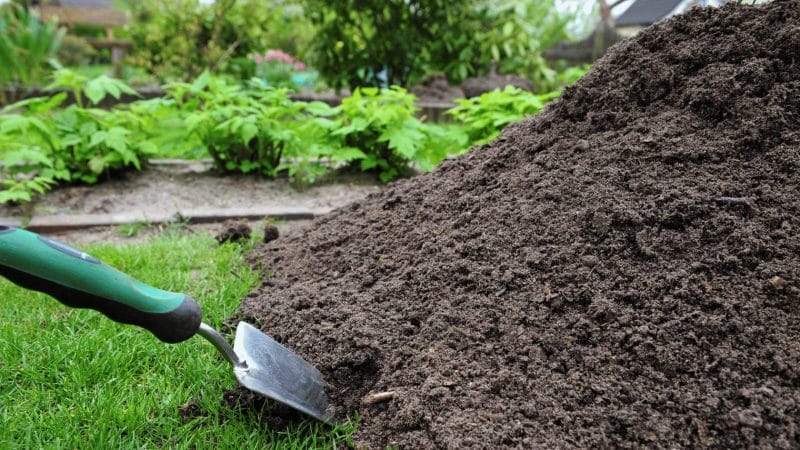
Are you looking for a way to improve the soil quality in your vegetable garden? Look no further than mushroom compost! This organic material is made from various organic materials, including peat moss, horse manure, and chicken manure, and has been proven to enhance soil structure and fertility greatly. Not only that, but mushroom compost can also help with water retention and pH levels in soil, making it a great addition to any gardener's toolkit.
Will Mushroom Compost Burn Plants?
Yes, too much fresh mushroom compost can burn plants due to its high soluble salt levels. It is important to mix it with other soil or compost and use it in small amounts to avoid plant damage.
In this guide, we'll dive deeply into the benefits of mushroom compost and how to use it in your garden for the best results. So, whether you're a seasoned gardener or starting out, read on to learn how mushroom compost can take your vegetable garden to the next level.
Table of Contents
What is Mushroom Compost?
Mushroom compost is a type of organic fertilizer specifically made for growing mushrooms. The composting process involves combining organic materials and adding mushroom spawn, the material used to grow mushrooms. This process creates a substrate rich in essential nutrients and beneficial microorganisms essential for plant growth.
The Benefits of Mushroom Compost
Mushroom compost is a great addition to any vegetable garden. It is a rich source of essential nutrients, such as nitrogen, phosphorus, and potassium that are important for the growth and health of plants. Additionally, mushroom compost is high in beneficial microorganisms that help to improve soil structure and water retention.
Mushroom compost is also a great way to add organic matter to your soil, which is essential for good soil structure and fertility. Organic matter helps to improve the soil's water-holding capacity, as well as the ability of the soil to hold on to essential nutrients.
One of the biggest mushroom compost benefits is that it is a great way to reduce the number of weed seeds in your garden. Mushroom compost is high in organic matter, which helps smother weed seeds and prevent them from germinating. This is especially beneficial for vegetable gardens, where weeds can quickly take over and compete with your plants for nutrients and water.
Another benefit of mushroom compost is that it is a good source of beneficial microorganisms that help to improve soil structure and water retention. These microorganisms help to break down organic matter and release essential nutrients that are important for plant growth. They also help to improve the soil's ability to hold on to moisture, which is essential for the health of your plants.
How Mushroom Compost Improves Soil Quality
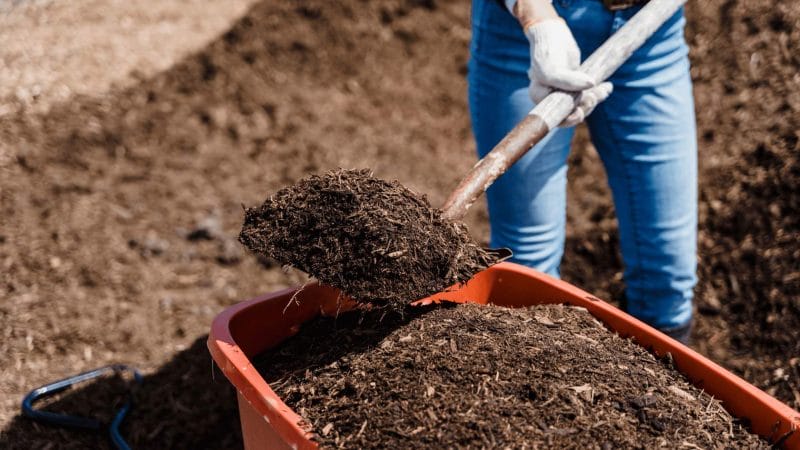
Mushroom compost is a great choice for gardeners who want to improve the fertility and quality of their soil. It is high in essential nutrients such as nitrogen, phosphorus, and potassium, as well as beneficial microorganisms that help to improve soil structure and water retention.
Organic Materials in Mushroom Compost
- Mushroom compost comprises various organic materials, including peat moss, horse manure, chicken manure, and soybean meal.
- These materials provide essential nutrients for plants, such as nitrogen, phosphorus, and potassium.
- They also improve the structure of the soil, making it more porous and easier for plant roots to penetrate.
- Additionally, mushroom compost's organic matter helps improve soil fertility by providing food for beneficial microorganisms.
Water Retention and pH Levels
- Mushroom compost is a great way to improve the soil's water-holding capacity. This is especially important in clay soils, which are known to drain poorly.
- The organic matter in mushroom compost helps to improve moisture retention, allowing plants to access water more easily.
- Mushroom compost also helps to balance the pH level of the soil. It is particularly useful in acidic soils, as it can help to raise the pH level and make it more alkaline.
- This is beneficial for plants, as most garden plants prefer slightly alkaline soil (around pH 7) for optimal growth.
Using Mushroom Compost in Your Garden
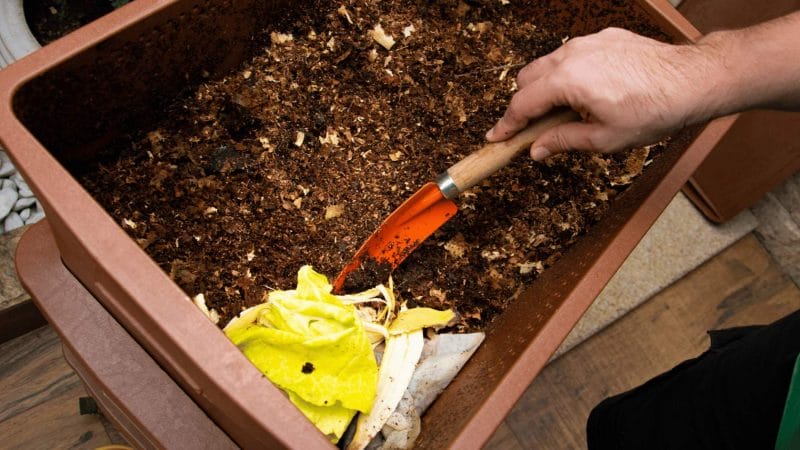
If you're looking to add mushroom compost to your garden, it's important to understand that it should be used in moderation. While it is an excellent way to improve soil quality, too much of it can have a negative impact on your plants. For example, mushroom compost has a high salt content, which can harm salt-sensitive plants. To avoid this, mixing the compost with other organic materials, such as fresh chicken manure or soybean meal, is best to dilute the high salt levels.
When using mushroom compost in your garden, you must consider the type of plants you're growing. Acid-loving plants, such as heath family members, will do well in soil amended with mushroom compost, as it is slightly acidic. However, for plants that prefer more alkaline soil, it's best to use other types of compost or add additional materials, such as bales of straw or wood chips, to balance the pH levels.
Another thing to consider is the timing of when you add mushroom compost to your garden. It's best to add the compost in the fall or early spring when the soil is moist, and the temperature is adequate for composting. Adding the compost during the growing season or in the middle of a hot summer can lead to mushroom compost burn, which can harm plant roots. Mushroom compost is one key to a successful garden. If you want to learn more tips, read How to Level Up Your Garden with Smart Gardening.
Do Tomatoes Like Mushroom Compost?
Tomatoes can benefit from mushroom compost as it can improve soil structure, fertility, and water retention, providing essential nutrients for tomato plants to thrive. However, it is important to note that fresh, undiluted mushroom compost can have high salt levels, potentially harming tomato plants, especially if they are salt-sensitive. Mix mushroom compost with other soil amendments or dilute it with regular garden soil before using it on tomato plants. Allowing the compost to age for several months can also help reduce the high salt levels. Before using mushroom compost, it is always advisable to do a soil test to determine the pH level and ensure it is suitable for tomato growth.
Is Mushroom Compost Good For Peppers?
Yes, mushroom compost can be good for peppers as it provides essential nutrients and improves soil structure, water retention, and fertility. Like tomatoes, peppers can also benefit from the beneficial microorganisms found in mushroom compost that promote plant growth and health. However, it is important to note that fresh, undiluted mushroom compost can have high salt levels that can potentially harm pepper plants, especially if they are salt-sensitive.
It is recommended to mix mushroom compost with other soil amendment or dilute it with regular garden soil before using it on pepper plants. Additionally, allowing the compost to age for several months can also help reduce the high salt levels. Before using mushroom compost, it is always advisable to do a soil test to determine the pH level and make sure it is suitable for pepper growth.
Compost Comparison Chart
| Compost Type | Nutrient Content | pH Level | Best Use | Average Cost | Availability |
|---|---|---|---|---|---|
| Mushroom Compost | High Nitrogen, High Phosphorus | High | Vegetable Gardens | $25-$40 per yard | More Expensive, Less Widely Available |
| Green Waste Compost | Low Nitrogen, Low Phosphorus | Low | Lawns and Ornamental Gardens | $15-$25 per yard | Less Expensive, More Widely Available |
| Manure Compost | High Nitrogen, High Phosphorus | Varies | Vegetable Gardens | $10-$20 per yard | Less Expensive, More Widely Available |
| Kitchen Compost | Low Nitrogen, Low Phosphorus | Varies | Soil Amendment | $5-$10 per yard | Less Expensive, More Widely Available |
Is Cow Manure or Mushroom Compost Better?
The answer to which is better between cow manure and mushroom compost depends on the specific needs of the plants being grown.
Cow manure provides a good source of nitrogen, phosphorus, and potassium, which are essential for plant growth. It can also improve soil structure and fertility. However, fresh cow manure can contain harmful pathogens and weed seeds, so it should be composted thoroughly before being applied to garden soil.
On the other hand, mushroom compost is made from a mixture of organic materials such as peat moss, horse manure, corn cobs, soybean meal, and chicken manure. This combination of materials provides a balanced source of essential nutrients for plant growth, as well as beneficial microorganisms that help improve soil structure, water retention, and fertility. However, it can have high salt levels that can be harmful to some plants, especially salt-sensitive ones.
The choice between cow manure and mushroom compost will depend on the type of plants being grown, the soil pH, and the specific soil conditions. Both can be great additions to garden soil, but it is always advisable to do a soil test before applying either and to take the necessary precautions.
Precautions to Take When Using Mushroom Compost
While mushroom compost is a great addition to your garden, taking a few precautions is important to avoid potential problems. Firstly, it's best to use small amounts of undiluted mushroom compost to avoid high soluble salt levels. Too much salt can harm the roots of your plants and lead to blossom end rot. Additionally, it's best to avoid using fresh mushroom compost, as it can contain weed seeds and harmful bacteria.
Avoid Plant Burn: The Risks of Using Mushroom Compost
Mushroom compost is a popular soil amendment for gardeners and farmers alike, as it provides a wealth of benefits for plant growth and health. However, it is important to be aware of the potential risks associated with using this type of compost, especially when it comes to the possibility of burning plants.
Fresh mushroom compost can contain high levels of soluble salts, which can harm plants if applied in large quantities. This is because the salts can draw moisture away from the roots, leading to wilting and eventual death of the plant. The high salt content can also lead to a reduction in the overall quality of the soil, making it less hospitable to plant life.
To avoid these issues, it is recommended to mix the mushroom compost with other soil or compost, and to use it in small amounts. This will help to dilute the salt levels and reduce the risk of burning. It is also important to be mindful of the type of plants you are growing, as some species are more salt-sensitive than others. For example, young seedlings and young plants are particularly susceptible to salt burn, as are plants that are already suffering from stress or disease.
The Role of Salt in Mushroom Compost
Mushroom compost can contain high levels of salt, which can harm plants if used in excess. However, mushroom compost can be an excellent way to improve soil quality when used in small amounts.
To ensure that the salt levels in your mushroom compost do not burn your plants, it is important to take a few precautionary measures. One way to do this is to use a soil test kit to measure the salt levels in your soil before applying mushroom compost.
If you do find that your mushroom compost has high salt levels, it is best to use it sparingly, only applying small amounts at a time. Additionally, you should avoid using mushroom compost on salt-sensitive plants, such as young seedlings or tomato plants, as they are more susceptible to salt burn.
Plants That Don't Like Mushroom Compost
| Plants | Reasons for not liking mushroom compost |
|---|---|
| Acid-loving plants | High levels of nitrogen and alkaline pH |
| Delicate seedlings and young plants | Rich, nutrient-dense soil |
| Tomatoes and peppers | Poorly drained soil |
| Brassicas | Prone to clubroot |
| Root crops | Deformed roots |
Conclusion: Understanding the Effect of Mushroom Compost on Plant Growth
In conclusion, mushroom compost can be a great addition to garden soil for both vegetable gardens and flower beds. It provides a balanced source of essential nutrients, beneficial microorganisms, and improved soil structure and water retention. While fresh cow manure can also provide valuable nutrients to garden soil, it is important to thoroughly compost it before applying it to avoid the risk of harmful pathogens and weed seeds.
When considering using mushroom compost in your garden, it is essential to take the necessary precautions, such as doing a soil test and being aware of the salt content in the compost. If you're not sure, it's always best to start with small amounts and monitor the growth of your plants before applying more.
If you want to enhance the quality of your garden soil, try mushroom compost. It could be the perfect solution for achieving the best results for your plants. So why wait? Start exploring the benefits of mushroom compost today!

